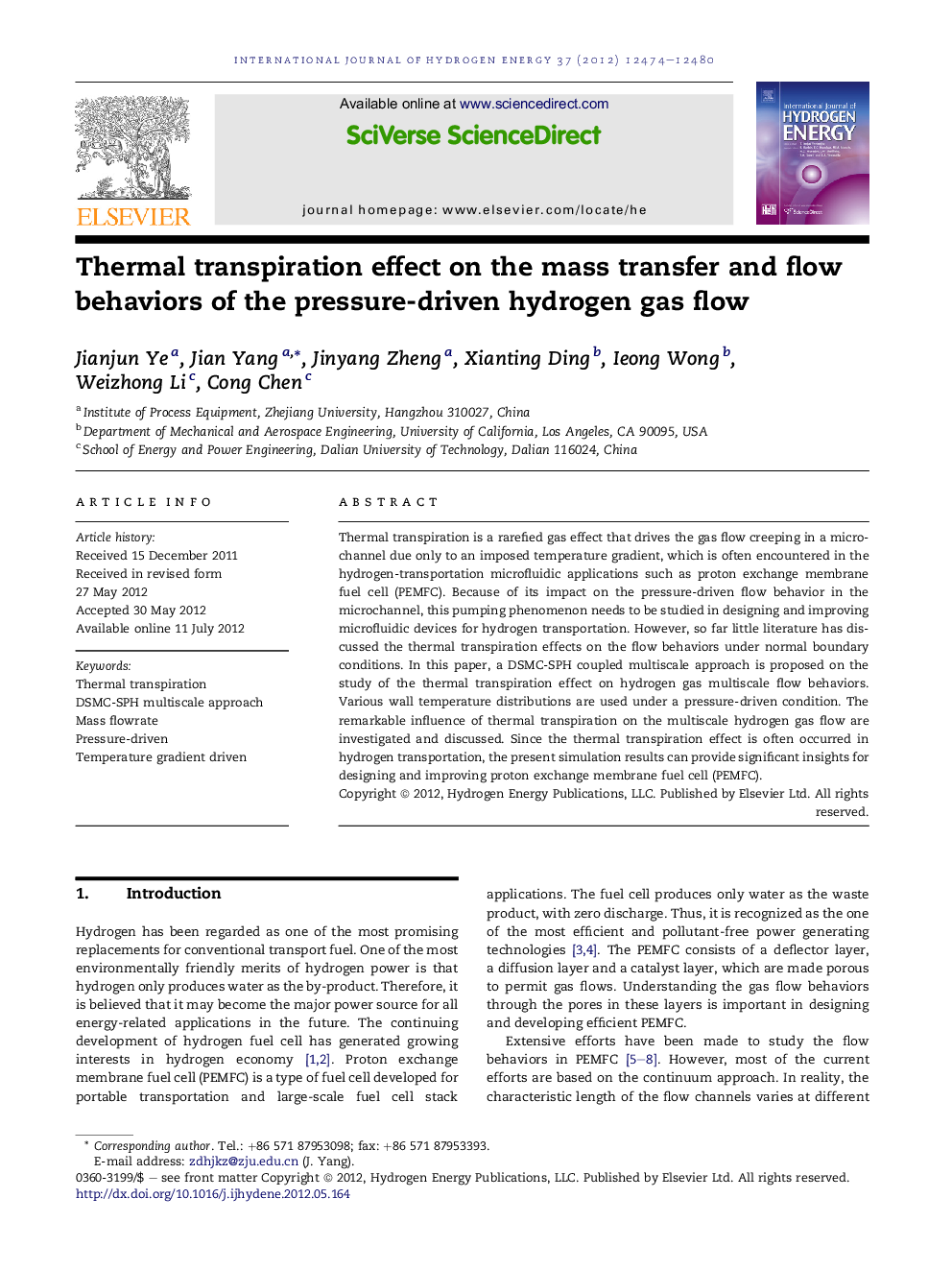| Article ID | Journal | Published Year | Pages | File Type |
|---|---|---|---|---|
| 1271084 | International Journal of Hydrogen Energy | 2012 | 7 Pages |
Thermal transpiration is a rarefied gas effect that drives the gas flow creeping in a microchannel due only to an imposed temperature gradient, which is often encountered in the hydrogen-transportation microfluidic applications such as proton exchange membrane fuel cell (PEMFC). Because of its impact on the pressure-driven flow behavior in the microchannel, this pumping phenomenon needs to be studied in designing and improving microfluidic devices for hydrogen transportation. However, so far little literature has discussed the thermal transpiration effects on the flow behaviors under normal boundary conditions. In this paper, a DSMC-SPH coupled multiscale approach is proposed on the study of the thermal transpiration effect on hydrogen gas multiscale flow behaviors. Various wall temperature distributions are used under a pressure-driven condition. The remarkable influence of thermal transpiration on the multiscale hydrogen gas flow are investigated and discussed. Since the thermal transpiration effect is often occurred in hydrogen transportation, the present simulation results can provide significant insights for designing and improving proton exchange membrane fuel cell (PEMFC).
► A novel DSMC-SPH multiscale method is presented and proved effective. ► Thermal transpiration effect affects the pressure-driven hydrogen flow. ► The DSMC-SPH method is used for investigating the thermal transpiration effect. ► The results are beneficial for the design and control of PEMFC.
